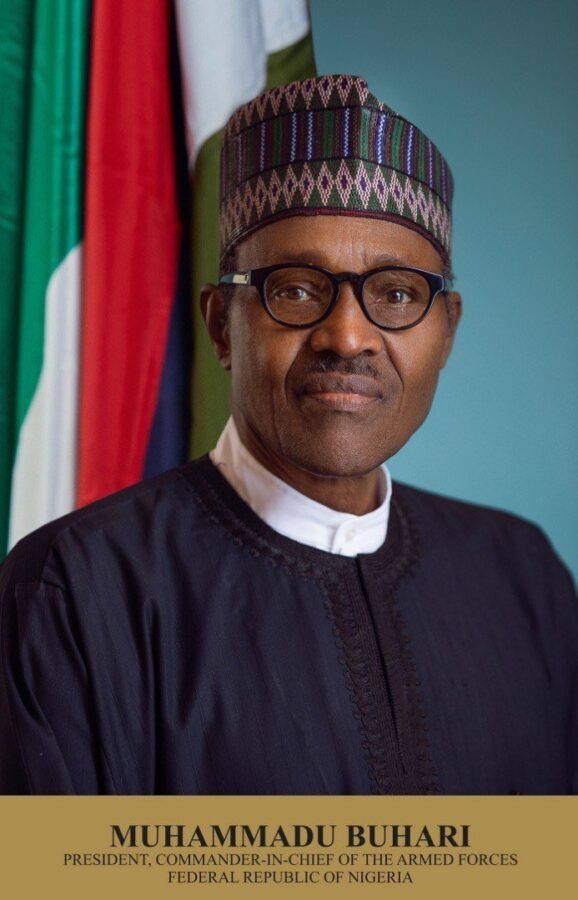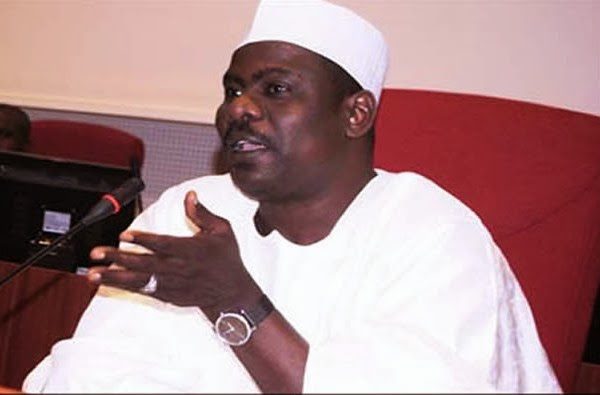Democracy & Governance
The Speech That Was Short On Empathy And Inspiration -By Abachi Ungbo
Democratic National Convention speech, Michelle Obama aptly captures the power a president wields – “President’s words have the power to move markets. They can start wars or broker peace. They can summon our better angels or awaken our worst instincts. You simply cannot fake your way through this job.”

Not a few anticipated a short presidential address in the wake of the introduction of a raft of measures which came in thick and fast primarily in addressing the impact of the pandemic induced crisis on the socio-economic well being of the nation.
The measures further added to the existing burden which the citizens were creaking under before, during, and in the aftermath of the lockdown. The atmosphere was already that of gloom and despondency.
At that point, citizens needed inspiration and leadership to inspire a tad of hope and confidence since the government has undergone some kind of Damascus experience on the measures notably fuel subsidy removal it once pooh-poohed when as an opposition.
At least, the demonstration launched against the same measure instituted by erstwhile administration was simply out of empathy for Nigerians which was amply applauded.
So, the independence day broadcast of the President was a missed opportunity to adequately speak to the fears and anxiety of the citizens over the state of the economy and the scorching measures instituted as a consequence.
The message of hope that was quietly awaited didn’t come true. Instead, disillusionment was only deepened at the end of the broadcast. It practically didn’t betray any scintilla of empathy.
Doris Kearns Goodwin in her book Leadership: In Turbulent Times quoted Franklin Delano Roosevelt’s speechwriter- that Robert Sherwood said something like most of the time a President can just be that portrait in a box. But then when something occurs he has to come out of that box and connect to the people. Mr President’s speechwriter failed flatly to help him achieved that. The idea is to project the President as the consoler-in-chief through the power of inspiration and empathy.
The comparison of petrol pump price with those of other nations was way out of place. The excoriation of past leadership was at best diversionary as stated by a public commentator. Frustration with the state of the affair is demonstrable and has proved to be a common thread binding the most vulnerable amongst us.
No doubt, rebuilding the battered walls or rampant of the economy requires bold sacrifices from all and sundry but it behooves on the leadership to communicate empathetically with citizens as a means of enlisting support and understanding. There’s a need to connect with them about the changes and inspire confidence for the cause.
And, it requires that communication be couched in pleasant and soothing words in such a fashion that will show that a leader has his fingers on the pulse of their concern and disquiet.
Franklin Delano Roosevelt’s connection with citizens as he steered America out of the turbulent depression waters of the 1930s constitutes an important precedent on leadership behaviour in the thick of the national crisis. One of the challenges he had to contend with, was the restoration of confidence in a battered banking system and rally citizens to the cause.
It was reported that he appealed to the American people that “Confidence and courage are the essentials in carrying out the success of our plan. You people must have faith; you must not be stampeded by rumours or guesses. Let us unite in banishing fear. We have provided the machinery to restore our financial system; it is up to you to support and make it work. It is your problem no less than it is mine. Together we cannot fail.”
According to Don Lawson author FDR- New Deal (1973), some 65 million people listening to twenty million radios that night heard FDR’s warm, friendly, supremely confident voice and went to bed and slept better than they had in months. His fireside chat was always laced with empathy to inspire a bruised citizen.
On January 20th, 2008, then U.S President Barack Obama stood before a congregation in Ebenezer Baptist Church in Atlanta and said the “biggest deficit that we have in our society and in the world right now is an empathy deficit. We are in great need of people being able to stand in somebody else’s shoes and see the world through their eyes.”
Empathy in leadership may not sit well with a lot of people owing to its capacity according to a school of thought to impede disruptive measures. In truth, emotional intelligence expresses humanity in us not least amidst crisis like the current induced by the pandemic.
Allow me to copiously quote the response of Jacinda Ardern, female Australian Prime Minister on the qualities that have underpinned her path to leadership. She stated “kindness and not being afraid to be kind or to focus on, or be really driven by empathy.
She added, “I think one of the sad things that I’ve seen in political leadership is- because we’ve placed over time so much emphasis on notions of assertiveness and strength that we probably have assumed that it means you can’t have other qualities of kindness and empathy……… probably the quality we need the most, we need our leaders to empathize with next generation that we are making decisions on behalf.”
Crisis of whatever kind need leadership capable of placating beleaguered citizens through the offering of words of encouragement, sacrifice, and hope which is capable to galvanise citizens to display courage and understanding. In her d
Democratic National Convention speech, Michelle Obama aptly captures the power a president wields – “President’s words have the power to move markets. They can start wars or broker peace. They can summon our better angels or awaken our worst instincts. You simply cannot fake your way through this job.”
Not just in politics also in business, we need to listen to others, ask questions, and respond sensitively to others and divergent viewpoints. Displaying flexibility and not trying to control and dominate is significant. So, the president is as good as aides/advisers, etc in determining the fate of many under the orbit of power.
ABACHI UNGBO
abachi007@yahoo.com




















